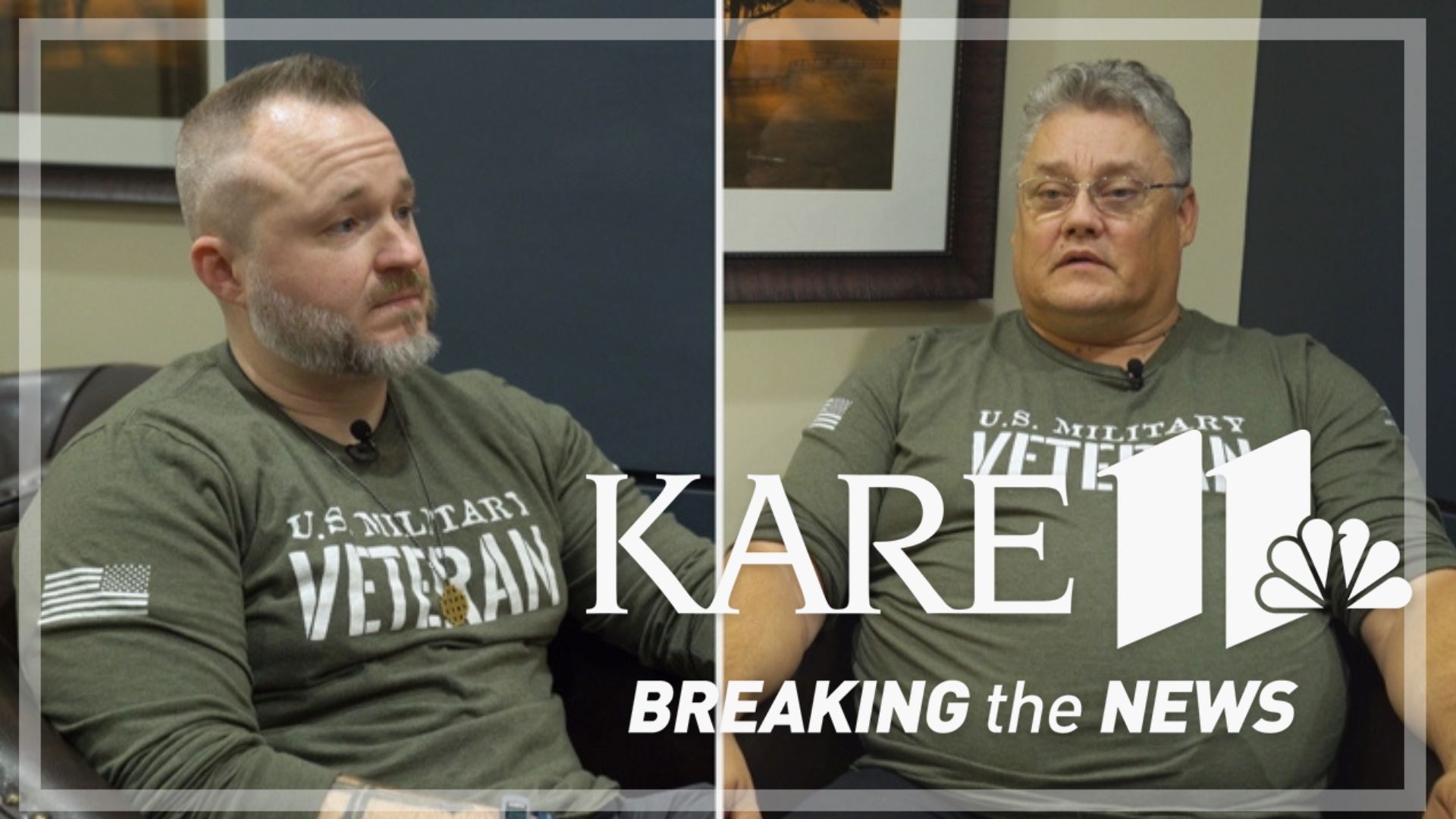MINNEAPOLIS, Minnesota — Alan Vanhoever's struggle with addiction started at 14 years old.
"I started out young with drinking, marijuana, went into some harder drugs. That's why I went to the military. I thought it was going to be the change to everything," Vanhoever said.
He joined the United States Army at 18 and served as a 31K combat signaler while stationed in Germany.
"That mindset of we work hard and we play hard kind of fell into play. So that's when I really started getting deep into drinking over in Germany was using a lot of hashish over there," Vanhoever said. "It's been this roller coaster of addiction my whole life up until five and a half years ago."
Brian Neidt can relate. Neidt spent four and a half years as a Korean linguist with the United States Marine Corps.
"I was a kid who was into binge drinking in high school. I never thought it was an issue. I didn't know that there was genetic issues in my family. And then when I went in the military and there was stress, and there was trauma, and... things that I didn't know how to cope with properly, it just took on a life of its own and kind of took over my life," Neidt said.
After returning to civilian life, Neidt said he felt alone and isolated.
About 11% of veterans who visit a medical facility run by the Department of Veterans Affairs for the first time have a substance use disorder (SUD), according to American Addiction Centers.
Both Neidt and Vanhoever reached points where they knew they needed help.
For Vanhoever, it was May 13, 2019.
"I was in the part of my addiction that led me to a massive amount of methamphetamines and starting to use heroin. Somebody had passed away in front of me of a heroin overdose that I couldn't help. I remember giving this woman CPR for half-hour straight and in a total freak-out mode. I met her one other time before this happened and I mourned and grieved that death like she was my best friend in that process," Vanhoever said. "I knew I needed help. I knew I needed something different. Then from a previous crime... I had to go sit in Sherburne County Jail for 120 days."
During that time in jail, Vanhoever met an outreach representative with Minnesota Adult & Teen Challenge (MnTC).
It led Vanhoever to participate in several MnTC programs, including their long-term recovery program. He's now five and a half years into his recovery.
"Being able to get mental health therapy was huge. I've never been to a therapist in my life until here. All of a sudden, all these things started opening up. I figured out that I could talk about pain and not be judged and not feel guilty," Vanhoever said.
Neidt remembers knowing he needed help when he woke up one night going through withdrawals.
"Pouring myself an entire glass of vodka and thinking, 'If I drink this, it's going to kill me.' But I drank it anyways. I knew that this was not a way I could live anymore," Neidt said.
Neidt went through 12 addiction treatments before finding MnTC.
"The 12 other treatments, I never really felt comfortable speaking about my time in the military. I didn't know who was safe to share with because it would typically be a maximum of 30-day treatment. When I got here and I finally established trust with people, I was able to open up some of those doors that I never thought I would," Neidt said. "It's just a completely different animal for veterans who are dealing with substance use issues because that masked all of my PTSD, my anxiety, my depression, my hypervigilance... just being out in public was difficult for me."
Neidt is now three years sober.
While MnTC had been treating veterans in the past, the organization started to put more focus on those efforts about four and a half years ago.
According to Vanhoever, veterans who have completed MnTC's 13-month program have a 90% success rate of not having a relapse.
Vanhoever now serves as a veterans community outreach representative at MnTC while Neidt is a marketing and business development manager for MnTC.
Neidt's message for veterans struggling with SUD?
"The way that you feel like you need to live, you don't. There's hope to live a life of purpose... that same meaning that you signed up to serve with can be found in a totally different, loving, nurturing, caring environment," Neidt said. "It's a better life."
Vanhoever, wearing a shirt that said "U.S. Military Veteran," pointed to his left sleeve with the MnTC logo on it and said, "That's our unit patch. We recognize that no matter where I've gone in this country... that starman brings us together. And as veterans... there's a whole 'nother level to that. Give us a call. We can help."
Those in need of help can call 612-FREEDOM.

